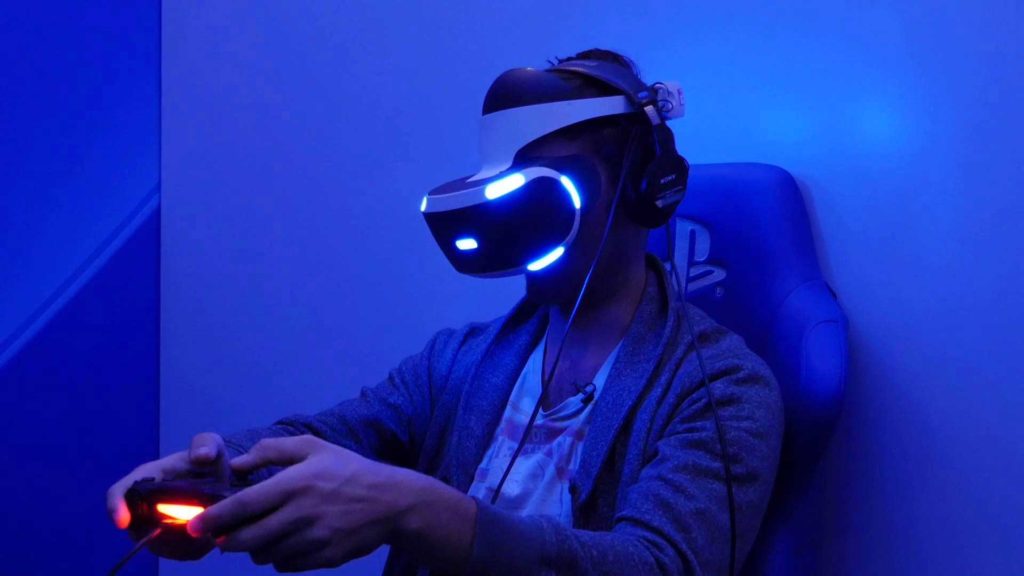Sony Music Entertainment Japan is entering the virtual reality fray this fall through a partnership with Littlstar Japan, the new off-shoot of Disney-backed Littlstar. Shigeki Tanaka, senior vice president of Sony Music Entertainment Japan, said the iOS and Android applications will launch in mid-September.
“We have witnessed for several months Littlstar’s enthusiasm to create a vibrant marketplace for VR content and continuously raising the bar for premium VR entertainment,” Tanaka told [a]listdaily. “Littlstar has had outstanding results in building its network in the US with an increasing number of top brands and content owners. As such, we think it is a good opportunity to now combine SMEJ’s strong content expertise with Littlstar to jointly bring high-quality VR experiences throughout Asia.”
Tony Mugavero, founder and CEO of Littlstar, said that Littlstar Japan will launch in cooperation with SMEJ.
“We will collaborate on editorializing and featuring content, working with advertisers and content partners, promotion on social media, press and marketing,” Mugavero said.
Mugavero said Japan and Asia are truly embracing VR. He added that Japan is technically savvy, creative and refined in their approach to music, art, food, communications and more.
“Music is deeply engrained in the culture, and as a new medium emerges, the right dynamics are already in place to be a great catalyst for connecting musicians to fans through VR,” Mugavero said. “As with every region, device makers are tight-lipped about sales numbers, but it’s clear that Japan, China, Korea and others are going all-in.”
Tanaka said both mobile headsets, as well as full-fledged headsets are getting popular in Japan.
“We built our partnership so as to attract more creators, as well as offer a polished way for Japanese consumer to discover exciting VR experiences,” Tanaka said.
Littlstar is a global launch partner for PlayStation VR. Sony Music Entertainment Japan will be able to target the Asian market with new and existing artists through VR content. Mugavero said US and other markets will be able to access this content as long as licensing agreements allow.
“Leveraging on the 43-plus million PlayStation 4s already active and enjoyed worldwide, PlayStation VR will provide an easy and turn-key solution for consumers to enjoy VR content,” Tanaka said. “While the natural first step is to cater primarily to the gaming community, we see this as a stepping stone towards the broader future or VR entertainment.”
The Littlstar platform also connects musicians and content makers across mobile devices, multiple VR headsets, mobile devices, Smart TV like the Sony Bravia and Apple TV.
Tanaka said he’s already seeing many up-and-coming artists, young creators and talented entrepreneurs starting to create unique VR content in Japan, even though the market is still in its early days and the distribution platforms are still nascent.
“In our observation, this is a very similar pattern to the mid-1990s when PlayStation was first introduced,” Tanaka said. “Our sincere wish for SMEJ, Sony and the whole industry is that we will collaboratively create a positive ecosystem in which both established and ‘indie’ content creators can express their creativity and deliver immersive storytelling thanks to strong technology and distribution enablers.”
Tanaka said this VR initiative is still “a work-in-progress.” What consumers experience most of the time today is “fixed-viewpoint” 360-degree video VR, which he believes is a good starting point to get accustomed to wearing a headset.
“In the longer run, the natural evolution is to have computer-generated content smoothly blended with cinematic video,” Tanaka said. “As real-time rendering engines steadily improve, fully computer-generated content will enable a ‘free-viewpoint’ experience where consumers are no longer passive ‘viewers,’ but active participants able to roam freely in those worlds.”
Tanaka believes gaming is the most promising genre in the short-term for VR, but as the installed base of headsets grows and its users’ demographics widens, more and more artists will see VR as a new dimension for music videos.
“Given the creative opportunities offered by this medium, new genres and innovative entertainment modalities will steadily appear as the next wave for VR,” Tanaka said.

